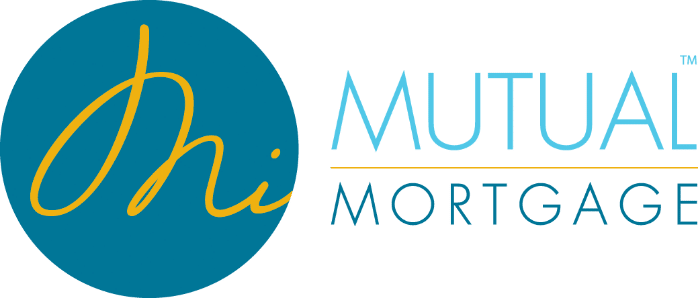Conventional Mortgages Explained
April Gould, June 6, 2023

Conventional loans offer greater flexibility in loan terms, limits, and programs. This gives borrowers more options to find a loan structure that aligns with their financial goals and preferences.
When it comes to purchasing a new home or refinancing an existing one, there are many loan options available. But a conventional loan is one of the most common types of mortgages because it is cost effective, applicable to nearly all types of properties and offers flexibility in loan terms, limits, and programs.
Conventional loans are mortgages that are not guaranteed or insured by any government entity, such as the Federal Housing Administration (FHA), the US Department of Agriculture (USDA) or the Department of Veterans Affairs (VA). Instead, they are backed by private lenders, including banks, credit unions, and mortgage companies. This means that the lender assumes the risk associated with the loan, without backing from a federal agency.
What makes this type of mortgage so popular?
COST EFFECTIVE.
Conventional loans are a great option for borrowers who have a good credit score and some money set aside for a down payment. This type of loan can be cost-effective in many ways:
Interest Rates:
Conventional loans require a higher minimum credit score than other loan programs. Lenders use credit scores to assess the risk associated with lending money. Borrowers with higher credit scores are considered less risky, and as a result, are typically offered lower interest rates on their loans. A lower interest rate can significantly reduce the overall cost of borrowing over the life of the loan. Even a slight reduction in interest rate can lead to substantial savings!
Loan Terms:
In addition to lower interest rates, borrowers with higher credit scores may be eligible for more favorable loan terms. This can include options such as lower origination fees, discounted closing costs, or flexible repayment terms. These advantages can further reduce the cost of obtaining the loan and make it more affordable.
PMI Fees:
When a lender allows a borrower to buy a house with a low-down payment, (some conventional loans require as little as 3% down) it will require that the borrower pay to insure their loan with mortgage insurance. This is because with a lower down payment the risk for the lender is greater than when at least 20% of the purchase price is put down.
On an FHA loan, borrowers pay an upfront mortgage insurance premium (UFMIP) at closing as well as an annual mortgage insurance premium that is due monthly. The MIP is charged for the life of the loan if the down payment was less than 10%. On USDA Rural Development (RD) loans, borrowers pay a guarantee fee of 1.0% of the loan amount upfront and annual fee of 0.35% of the loan amount for the life of the loan. VA charges a funding fee, which is a percent of the loan amount and will be charged either upfront or rolled into the monthly payment for the life of the loan.
Conventional loan PMI, however, can be avoided altogether by putting at least 20% down or, it can be cancelled once you reach 20% in home equity. By avoiding or minimizing PMI, borrowers can save a significant amount of money in the long run!
ELIGIBLE PROPERTY TYPES.
Conventional loans can be used to purchase or refinance a variety of property types. When compared to FHA and RD eligible properties, Conventional loans offer more options when it comes to house hunting.
MiMutual Mortgage offers conventional loans for:
Single-Family Homes: The most common type of property financed through conventional loans is single-family homes. These are standalone residential properties designed to house one family.
Multi-Unit Properties: Conventional loans can also be used to finance multi-unit properties such as duplexes, triplexes, and fourplexes. These properties allow owners to live in one unit and rent out the remaining units to generate rental income.
Condominiums: Conventional loans can be used to purchase or refinance condominium units if the condominium project itself meets certain criteria such as the financial stability of the homeowners’ association, occupancy rates, and insurance coverage.
Townhouses: Townhouses that are individually owned and not part of a condominium association can be financed through conventional loans. These are typically attached or semi-attached units that share walls with neighboring properties.
Planned Unit Developments (PUDs): PUDs are planned communities that consist of individually owned units, such as houses or townhouses, along with shared amenities and common areas.
Modular & Manufactured homes: Conventional loans can be used to finance modular homes, which are prefabricated homes that are constructed off-site and then assembled on the property. Modular homes must meet local building codes and be considered real property to be eligible for conventional financing. Manufactured homes must be on its own land and not located in a manufactured home community.
Second Homes: Conventional loans can also be used to finance second homes or vacation properties.
Investment Properties: Unlike government-backed mortgages, conventional loans don’t require that you live in the home. So, if you are looking to generate some extra income, this loan may be a good option for buying a rental home or a fixer-upper to flip.
FLEXIBILITY.
Conventional loans offer greater flexibility in loan terms, limits, and programs. This gives borrowers more options to find a loan structure that aligns with their financial goals and preferences.
Loan Terms:
MiMutual Mortgage offers fixed-rate and adjustable-rate mortgages (ARMS) to better suit your unique situation. Fixed rate terms can vary from a 10-yr to a 30-yr loan.
Loan Limits:
Another notable feature of conventional loans is their loan limits. The Federal Housing Finance Agency (FHFA) sets the conforming loan limit. These limits are based on median home prices and vary by county.
Conforming loan limits are periodically increased to keep up with current housing prices. To see the limits for 2023, CLICK HERE.
Government-backed mortgage loans, such as FHA loans, VA loans, and USDA loans, have specific loan limits set by the respective agencies. USDA loans for example are mortgages available for homes in an accepted rural area and is based on income limits.
Non-conforming loans are those with loan amounts greater than the conforming limit and are known as Jumbo Loans. MiMutual Mortgage offers a variety of Jumbo loan programs.
Loan Programs:
MiMutual Mortgage offers a variety of conventional loan programs. These include Fannie Mae’s (FNMA) HomeReady loans and Freddie Mac’s (FHLMC) Home Possible, HomeOne, and Refi Possible.
HomeReady is a great option for borrowers with low to moderate income and limited cash for a down payment. It allows first-time and repeat buyers to put as little as 3% down! Another great feature is that is allows for co-borrower flexibility. This means parents who don’t plan on living in the home but want to help their child buy a house, can be a co-borrower on the home!
Home Possible Like the HomeReady program, just 3% down is required, the down payment can be gifted, and the borrower must not exceed income requirements. The key difference is that the gifted down payment can be used for single or multi-unit homes.
HomeOne is geared toward first-time homebuyers. A first-time homebuyer is anyone who has not owned property in the three years prior to the mortgage application. This is a great option for borrowers who want a low-down payment (3%) without the income or location limits.
RefiPossible allows borrowers to take advantage of a better mortgage rate through refinancing. All primary residence property types are eligible, and if a property appraisal is required, a $500 credit will be issued to help cover the cost!
As you can see, conventional loans provide borrowers with a solid financing option for purchasing or refinancing a home. The flexibility and potential for lower costs makes this loan option attractive. If you would like to learn more about loan options that will work for you, contact one of our experienced loan officers today!
You are about to begin the mortgage loan application
- Applying on the MiMutual Mortgage Online Loan Application is quick, easy, and secure! The loan application will take about 25 minutes to complete.
- Once your application is submitted, you can log back into the MiMutual Mortgage Online Loan Application to securely upload requested documents, view your loan status, and communicate with your mortgage team.
- If you have questions, reach out to your MiMutual Mortgage Loan Officer.
Your guided mortgage journey starts here!
Start Application


